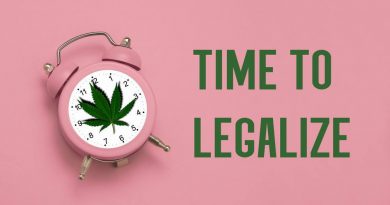Cannabis Opposition Still Fighting in the Halls of Congress
There’s plenty of good news about cannabis in recent years, from studies that indicate the many potential ways the plant can improve health and wellness to its growing popularity with the American public. Still, cannabis opposition remains strong in Washington.
In the corridors of power in Washington, a resilient group of lawmakers, predominantly Republicans, stands firm in their opposition to marijuana legalization. Despite relatively small numbers, this ad-hoc coalition has proven adept at maintaining their stance.
In recent months, this faction, though lacking in organization, has achieved significant victories, impeding the progress of crucial cannabis-related legislation. Even ardent supporters of federal legalization have found themselves temporarily outmaneuvered.
“We have entered the ‘fight you’ stage,” Justin Strekal, a prominent figure in the pro-legalization movement, told Politico.. Strekal, a former political director at the National Organization for the Reform of Marijuana Laws, emphasized that the setbacks serve as a stark reminder that things can take a sudden turn for the worse.
Across-the-Aisle Agreement Rallied Cannabis Oppositions
The tide appeared to shift in late 2022 when U.S. Senate Majority Leader Chuck Schumer joined forces with Sen. Steve Daines, a Republican from Wisconsin, to work on a series of cannabis bills. This move seemed to reinvigorate the longstanding opposition to marijuana reform.
Then, in April, a surprising turn of events unfolded. A bill designed to mandate the Department of Veterans Affairs to explore the potential benefits of marijuana in treating conditions like PTSD, a bill that had garnered unanimous support in committee, was derailed under the weight of conservative pressure.
Sen. James Lankford, a Republican from Oregon, strongly criticized the proposed research’s methodology and its perceived necessity during a GOP caucus meeting, effectively derailing its progress.
In a recent development, 14 lawmakers led by Lankford and Rep. Pete Sessions, a Republican from Texas, penned a letter to the Drug Enforcement Administration (DEA), urging the agency to rebuff the Department of Health and Human Services’ recommendation to relax federal restrictions on marijuana. This included a recommendation to move cannabis on the federal illegal drug list from Schedule I to Schedule III.
Lankford told Politico, “I just look at the cultural effects and the legal outcomes of this, and think, why would we as a nation say, ‘This is going so well we should do more of it’?” This sentiment underscores the ongoing debate surrounding marijuana policy at the federal level.
The Benefits of Marijuana Legalization
Despite the efforts of the cannabis opposition, they cannot change the fact that cannabis has led to benefits in the states that have created a legal market. In addition to raking in millions in taxes, states with legal cannabis have seen other benefits, including a drop in cannabis use by teens and the reduction in use of opioids.
Legalizing and regulating the cannabis industry also can lead to substantial economic benefits. It creates jobs in cultivation, processing, retail and service industries that support the cannabis industry.
In another benefit, law enforcement resources where cannabis is legal can be redirected towards more pressing issues when they are not consumed by pursuing cannabis-related offenses. Legalization also often includes provisions for expunging prior cannabis-related convictions, offering a pathway for individuals with previous offenses to rebuild their lives.
Legalization also contributes to the normalization of cannabis, reducing societal stigma associated with its use for both medical and recreational purposes.




